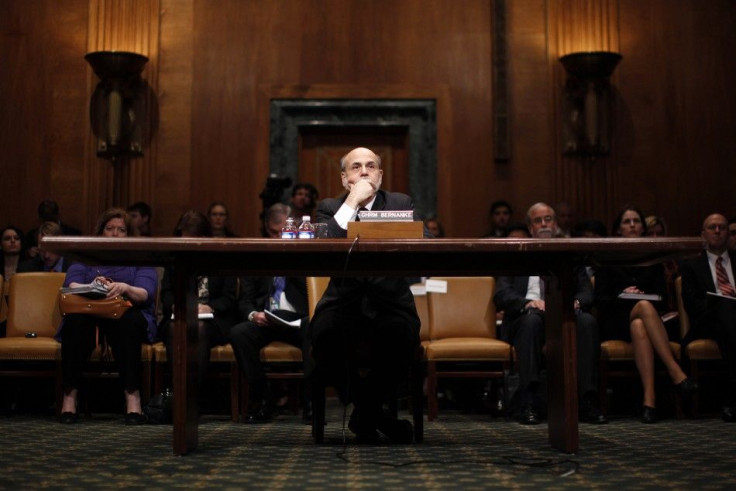Inflation, Deflation Debate: Which is Greater Threat to U.S. Economy?
Opinion

Part I of a series
There is a debate that has been heating up recently, and it's likely to continue to split some of the smartest minds from coast to coast. This debate revolves around whether prices for goods in the United States are on the rise or not.
The government numbers show modest inflation at best, however, there are many that question the calculations behind the numbers. Even though inflation may be a non-concern for the government, anyone who fills up their gas tank or frequents a grocery store will disagree.
The Government Numbers
According to the government numbers, prices are increasing at a very tepid pace, if at all, and the outlook is for this trend to continue. The latest consumer price index (CPI) reading showed no increase in prices in December versus one month earlier. This is the second consecutive month of flat prices.
For the entire year the CPI increased by three percent, the largest annual increase since 2007. The reading is above the two percent target the Federal Reserve is comfortable with, as Ben Bernanke said in his latest conference.
The D.C. Printing Press
One of the main reasons I believe inflation is inevitable in the future is directly tied to the government and their ability to print U.S. dollars. Think about this logically: The more of something there is available to the masses, the less it will be worth. So as the government floods the market with more dollars it will eventually lead to a decreasing value for the greenback. This lower value will result in an increase in prices for goods and services, thus inflation.
The counterargument versus the influx of cash into the system is that over the last two years the CPI number has shown little inflation. While that may be true, the reason the money is not already infiltrating our wallets has to do with the banking system. The large financial companies in the U.S. are sitting on hordes of cash that is not making its way to potential borrowers.
The Banks are Hording
Do not blame the banks for sitting on the cash. With the amount of regulations being placed on the financial sector by the government, why would a bank loan out money? Due to the more stringent capital requirements, the banks are forced to hold more cash in the event of another financial crisis. Adding to the problem is the potential changes to regulation and the tax code in the future -- the unknowns are a major issue.
If you are still against the banks, think about it in this manner. As a publicly traded company, the goal is to maximize the value of the company for its shareholders. To achieve this goal, banks want to lend money they can borrow for next to nothing to potential borrowers. The large spread between the borrowing interest rate and the rate offered to customers is pure cash for the banks.
Lending Will Come Back
As long as we can avoid another global recession and financial system collapse, the banks will begin to put the cash they are sitting on back into the marketplace. When this begins it will be one of the first definitive signals that serious inflation is right around the corner.
The uptick in global stock markets and Europe looking as if they may be working toward a resolution is another signal that the banks lending will be the next logical step. A stronger economy will allow for the banks to be more aggressive with their reserves and the lending begins to increase.
What may be good for your portfolio today, may be a portfolio killer in a couple of years. Prepare now for inflation.
Matt McCall is founder and president of Penn Financial Group, an investment advisory firm that specializes in ETFs and individual portfolio management. Matt is the author of two investment books: The Swing Trader's Bible: Strategies to Profit from Market Volatility and The Next Great Bull Market: How to Pick Winning Stocks and Sectors in the New Global Economy. He is a regular host on the Fox News Channel. His credits include: The Wall Street Journal, CNBC, Business Week, Bloomberg TV, and Investor's Business Daily, to name a few. You can check out his Web site here: www.MatthewDMcCall.com
© Copyright IBTimes 2024. All rights reserved.





















